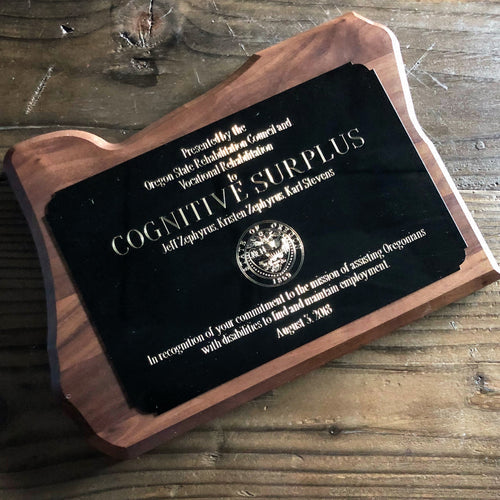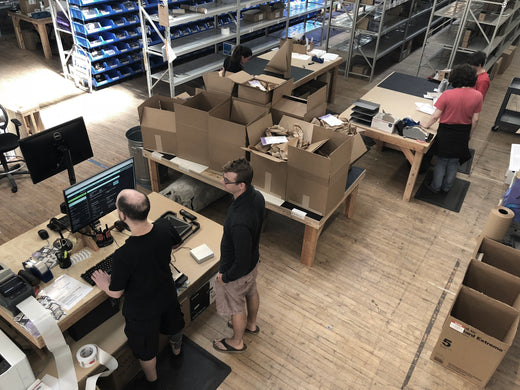It hadn't really even occurred to us that our hiring practices were unique until we started winning awards for our inclusive workplace. It has always seemed only decent to provide accommodations for some of the remarkable people we've had the great pleasure of employing.
We've been asked a lot of questions about our experiences and wanted to address some of them here. First, a few stats on our company's composition.
Our current staff ranges in age from people in their early 20s to their late 60s. We maintain a pretty balanced array of genders and orientations. We're minority-woman owned and led, and 30% of our staff has a disability.
What kinds of accommodations have you made for your employees?
While it's true that each person has unique specific needs, in general accommodations tend to fall into categories.
- Physical accommodations: we have provided equipment to allow a visually impaired person to interact comfortably with the computer, changed the type size and font on labels and packing slips, and reformatted information so that those in the I/DD community can work with our systems. We have modified and provided specialized equipment to allow an individual with a physical disability to work on our warehouse floor. We also allow headphones while working, which can help individuals with autism and anxiety stay calm and focused.
- Hiring accommodations: often I/DD adults and those on the autism spectrum don't interview well, so we have worked with coordinators and aides to do working interviews or trial periods to assess an individual's ability to perform a job.
- Schedule flexibility: sometimes a full-time position is too much for an individual to handle, so we have provided customized schedules and part-time work where possible.
- Job description modifications: (we have done this one a lot) if an individual with a disability is great at one part of the job, but unable to perform another part of the job, we do our best to re-shuffle job duties to allow specialization.
- Extra training: sometimes an individual just needs a little extra time to learn a task, assigning a point-person to answer additional questions, or the willingness to re-train as needed is often all that's required to retain an employee.

Isn't this just charity?
This is absolutely not charity. Finding a good fit between the job and the employee can be a bit of an art, and it does take a little fine-tuning and some extra patience and effort, but ultimately, finding that fit is great for everyone involved. We have found some of our most committed and reliable staff members by being just a little bit accommodating. Allowing an individual who might not otherwise be able to find a meaningful career the ability to achieve and maintain full-time employment both enriches our workplace and provides a structure to their days that can set off a cascade of other positive changes.
Do you expect workers with disabilities to perform to the same standards as neurotypical adults?
Yes, absolutely. Once trained, everyone is expected to perform their duties to the same standard. We find this is really important for morale. No one wants to feel like they're expected to do more for the same job title and pay than their coworker.
What kinds of jobs do your employees with disabilities hold at Cognitive Surplus?
We have employees with disabilities in all areas of our company, from upper-level management through entry level warehouse work.
What resources are there to help me get started working with adults with disabilities?
The vocational rehab office in your state is a great place to start. We have also worked with Portland's Youth Transition Program, which helps graduating high school seniors with disabilities find meaningful employment. If there's a Project Search program near you, you could try reaching out to them too – it's a really impressive and comprehensive program.






